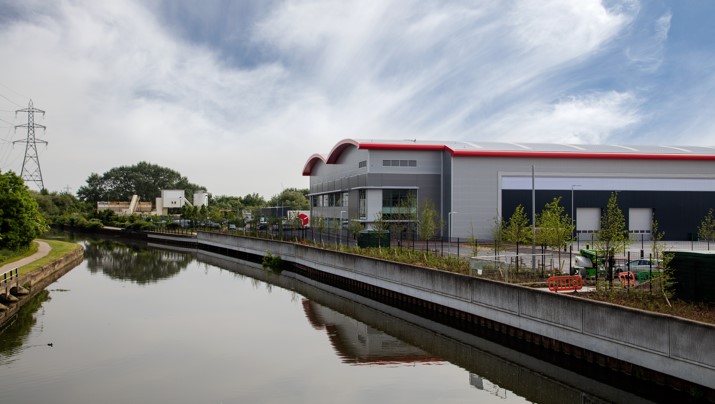This article is part of a series of selected ESG case studies submitted by participants in the 2017 GRESB Real Estate Assessment.
“Navigation Park is another example of SEGRO leading the way in Sustainable Industrial development.” Ben Brakes, Group Sustainability Manager
Purpose of the project
The aim of the project was to develop London’s first zero carbon industrial scheme. Building a zero carbon development is viewed as an important milestone for SEGRO to challenge issues such as climate change and energy security, as well as demonstrating SEGRO’s expertise and specialist knowledge of the light industrial market.
Approach
Planning required the development to improve on building regulations by 40% which was achieved through energy efficient building fabric and M&E fixtures. A feasibility study was then completed for rooftop solar photovoltaic systems across the three industrial units. It was demonstrated that the solar panels could offset the regulated energy of the building, resulting in an A+ rated Energy Performance Certificate. SEGRO already had a solar PV model in place where by SEGRO pays the CAPEX for a solar PV system, maintains the system and agrees to sell the energy to the tenant through a Power Purchase Agreement at below market prices. This model was used to fund the solar panels at Navigation Park.
Implementation
The scheme harnesses energy efficient initiatives including LED lighting controlled by motion and light sensors and high U-Value building fabric, outperforming building regulations by approximately 40%. The most significant component in the scheme’s ‘carbon neutral’ status has been achieved through the installation of 428 kWp of solar photovoltaic panels across the three buildings. The solar panels are expected to offset approximately 240 tonnes of carbon per year, generating more energy than will be required from the grid.
Results
This solution requires engagement with potential occupiers to communicate the benefits of signing up to a Power Purchase Agreement. This project was completed after the decline in Feed-in-tariff subsidy and demonstrates that projects can still be economically feasible in the current market.
References
More information can be found on our website.
This case study was submitted by SEGRO.



